Resolving difficulties for the Education sector in the new context - Part 2: "Marching and lining up"
After the two-level government came into operation, the transfer process encountered many difficulties, causing a series of new school construction projects in the area to be at risk of being delayed. Meanwhile, more than half of the communes and wards in the province do not have civil servants with expertise and experience in the education sector, so the government is also facing difficulties in management.


Content:Tien Hung - My Ha;Technique: Nam Phong • September 11, 2025
After the two-level government came into operation, the transfer process encountered many difficulties, causing a series of new school construction projects in the area to be at risk of being delayed. Meanwhile, more than half of the communes and wards in the province do not have civil servants with expertise and experience in the education sector, so the government is also facing difficulties in management.

For over a year now, Quang Trung Primary School (Thanh Vinh Ward) has had to rent rooms from a local university to accommodate over 1,100 students. The old school has been demolished and cleared for a long time, but the construction of the new school has yet to begin.
“When the project was approved, the old Vinh City government provided the school with funds to rent a new space, but only for two school years. After the 2025-2026 school year, the funds will no longer be available. Meanwhile, the project has yet to start construction, so it will almost certainly not be completed by the end of this year. The school will have to extend the lease, but we still don’t know where to get the money to rent it,” said Ms. Tu Thi Thu Huong, Principal of Quang Trung Primary School.
The project to build a new Quang Trung Primary School was approved by the People's Committee of Vinh City (old) a long time ago, and assigned the People's Committee of Quang Trung Ward (old) as the investor. At the beginning of the 2024-2025 school year, after the school had rented a new place to teach, the construction unit brought in machinery to dismantle the old buildings. However, when there was only one 2-story building left to be demolished, the site clearance stopped. For nearly half a year, there has been no sign of workers or machinery at this construction site. Meanwhile, teachers and students of Quang Trung Primary School are anxiously counting the days to study in the new school.
“Having to rent a room to teach is very inconvenient, and the students are also at a disadvantage. Because they rent a room from a university, they rent it out to many units, including companies, so the students cannot go down to the campus to play. Each class can only stay in the classroom. That is why we really hope the project will be completed soon. But with the current progress, we will probably have to extend the lease contract,” said Ms. Tu Thi Thu Huong, adding that currently, the monthly cost to rent the new facility is 160 million VND. However, due to not having enough classrooms, the school has to teach in 2 shifts, even on Saturdays.
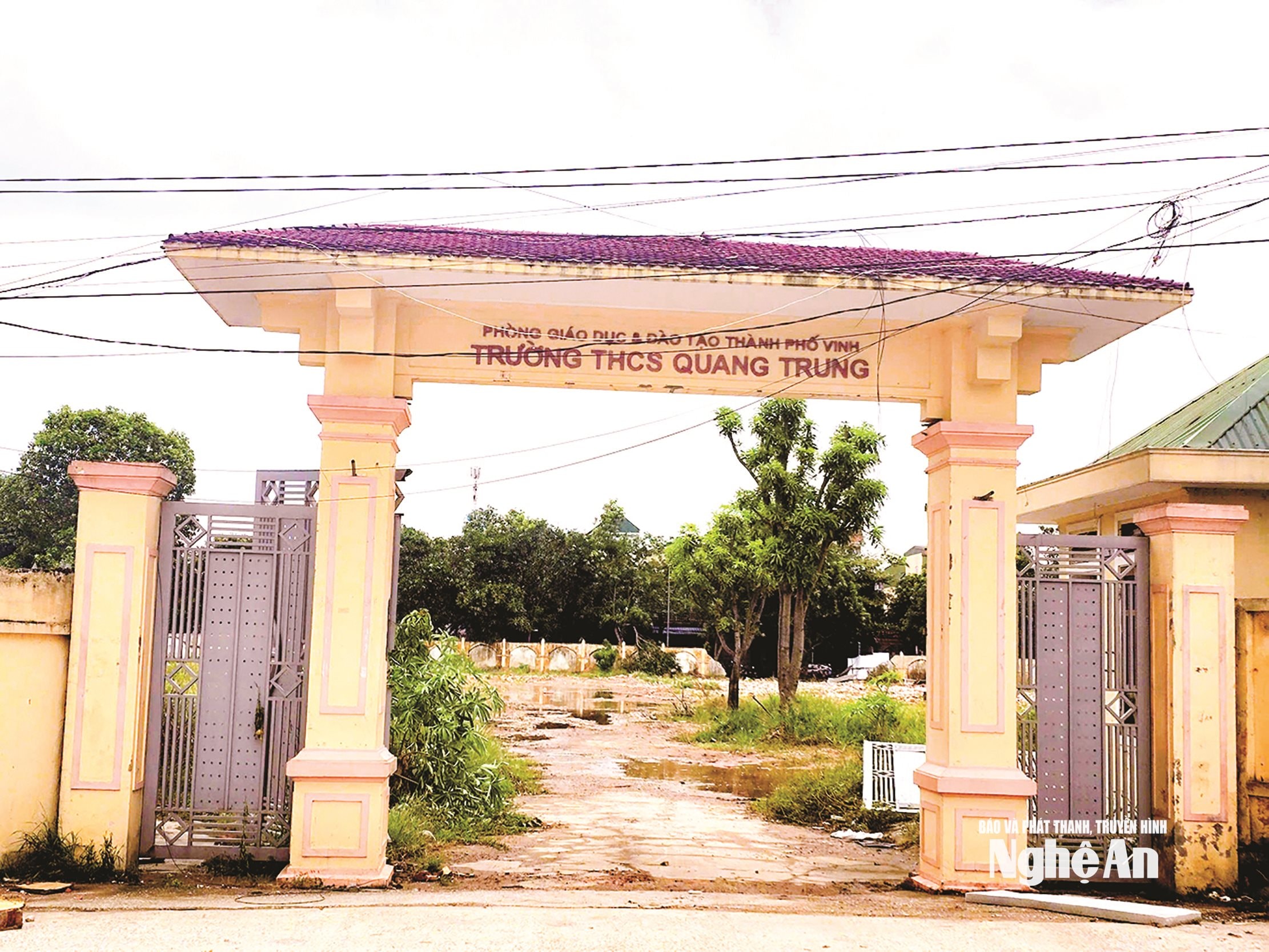
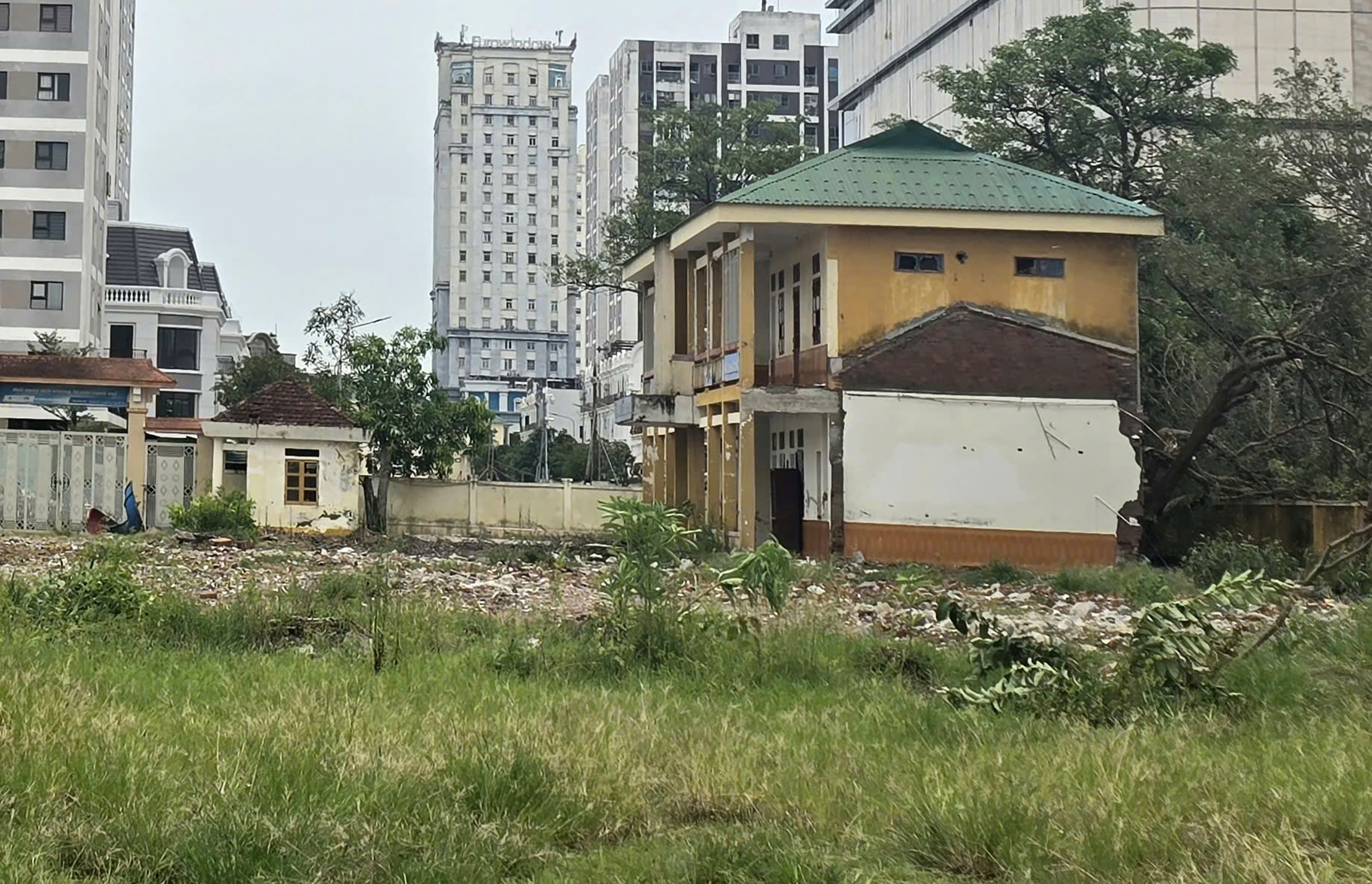
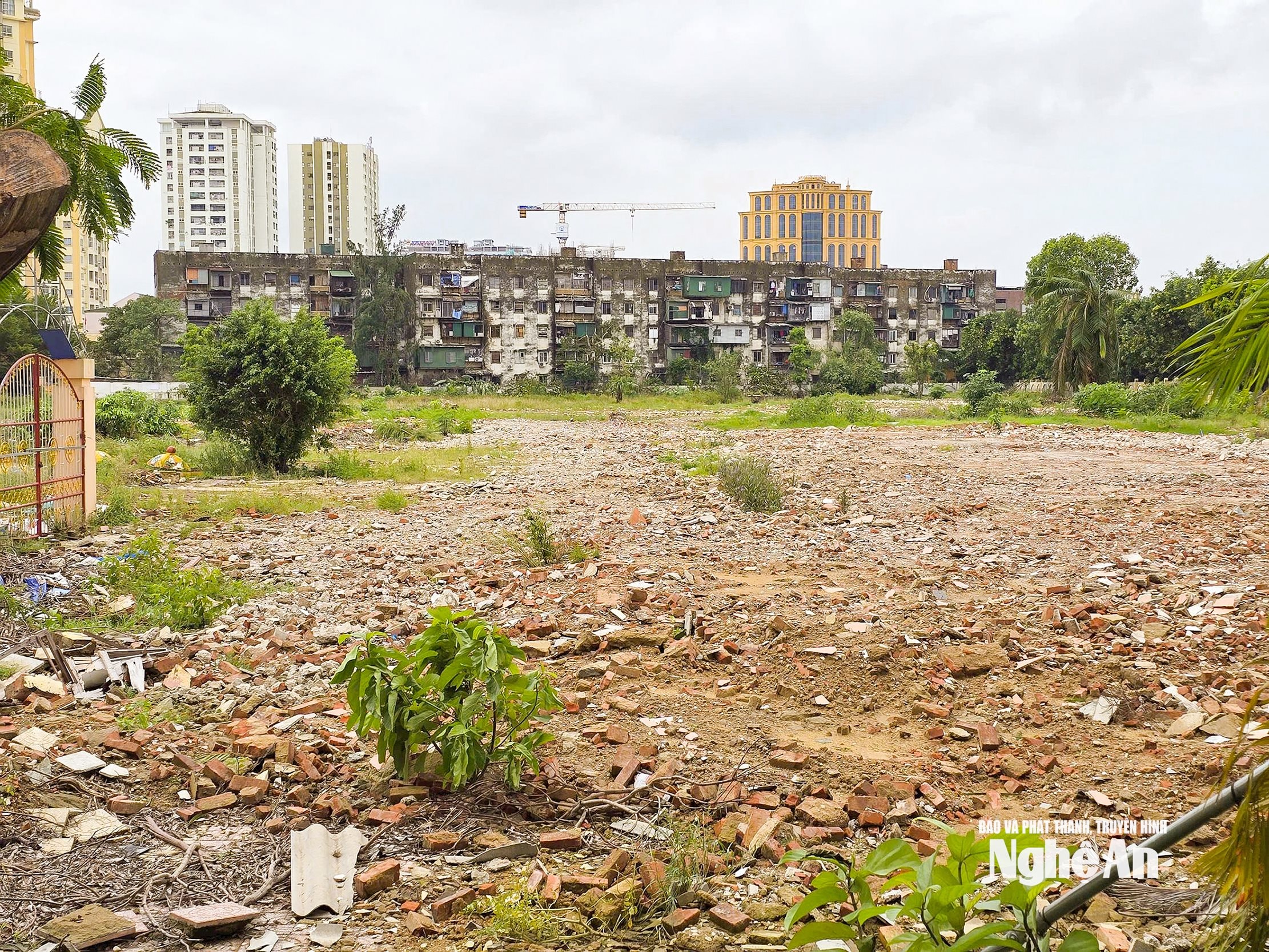
In addition, more than 1,000 students of Quang Trung Secondary School are also in a similar situation. This school was previously approved for a completely new construction project. Therefore, the school had to rent another facility to teach. However, up to now, the project progress has only stopped at the stage of clearing the land and then left there.
These are just two of a series of school projects that are at risk of being delayed after the two-level government transfer process. Among them, Thanh Vinh Ward is the locality with the most projects facing difficulties and obstacles. According to a leader of Thanh Vinh Ward People's Committee, there are currently 19 school construction projects in the area, with a total investment of nearly 775 billion VND, decided by the City People's Committee (before the reorganization).
In particular, the project to build a new Quang Trung Secondary School has just completed the selection of a contractor and is still selecting consultants. The project to build a new Quang Trung Primary School is completing investment procedures before selecting a contractor. Along with these two schools, there are a series of projects such as the construction of a new Hung Binh Primary School, Cua Nam Kindergarten; Le Mao Kindergarten; Hung Chinh Secondary School, Cua Nam Secondary School, etc.

“Up to now, the competent authority has not yet had a direction on transferring projects to the (new) ward level to receive and manage according to regulations, leading to insufficient basis for the People's Committee of Thanh Vinh Ward to implement the next procedures; especially the authority in implementing the project's investment procedures and the ability to balance capital in accordance with the project's progress in the coming time. Some projects that are implementing investment steps and procedures are having to be temporarily suspended,” said the leader of the People's Committee of Thanh Vinh Ward, giving an example, such as the project at Cua Nam Kindergarten, the Department of Construction has not yet issued the results of the appraisal of the construction drawing design step because the responding entity has not been determined (previously the agency submitting the appraisal to the Department was the old City People's Committee); As for the project at Le Loi Secondary School, the construction drawing design has been approved but there is not enough basis to approve the contractor selection plan. For the Quang Trung Primary School project, the consulting unit has prepared a bidding document but it has not been approved.
According to the leader of Thanh Vinh Ward People's Committee, for projects under construction, because there is no capital source to arrange payment for contractors due to the lack of transfer to the project associated with the arrangement of capital from the provincial budget, it leads to the mentality of working in a wait-and-see manner of the construction unit. "As for projects that are selecting unfinished consulting contractors such as Quang Trung Secondary School, there has been a request from the contractor on the national bidding system about the bidding results, however, the authority to respond and handle the matter is not clear, along with the current overload of the bidding system, it is not possible to complete the establishment of the ward's account, leading to a prolonged progress", said the leader of Thanh Vinh Ward People's Committee.

For nearly two months now, since the new two-level government came into operation, Mr. Hoang Dinh Tam - a specialist at the Department of Culture and Society of Van Kieu commune (formerly Nghi Loc district) - has had almost no time to relax. "Just reading documents sent down from the Departments takes up most of the day," Mr. Tam said. Mr. Tam used to be a cultural officer of the old commune. After the merger, he became a specialist in charge of four areas including education, religion, digital transformation and administrative reform.
“Education is really new to me, so I have to say that I study and work at the same time. Luckily, I have the advantage of having the education sector enthusiastically guide me,” Mr. Tam added.
Luckier than Van Kieu commune, in Dien Chau commune, the specialist in charge of the education sector of the commune had previously worked at the Department of Education and Training of the old Dien Chau district, although it was only in finance and accounting. “I also have an advantage over many other colleagues because although I used to only work as an accountant, I also have many acquaintances in the education sector. Now that I am assigned to be in charge of this field, I can both study and work. Thanks to my old relationships, if I don't know anything, I proactively ask the Department and then ask my old colleagues,” said Ms. Le Thi Thanh Tam - education specialist of Dien Chau commune.
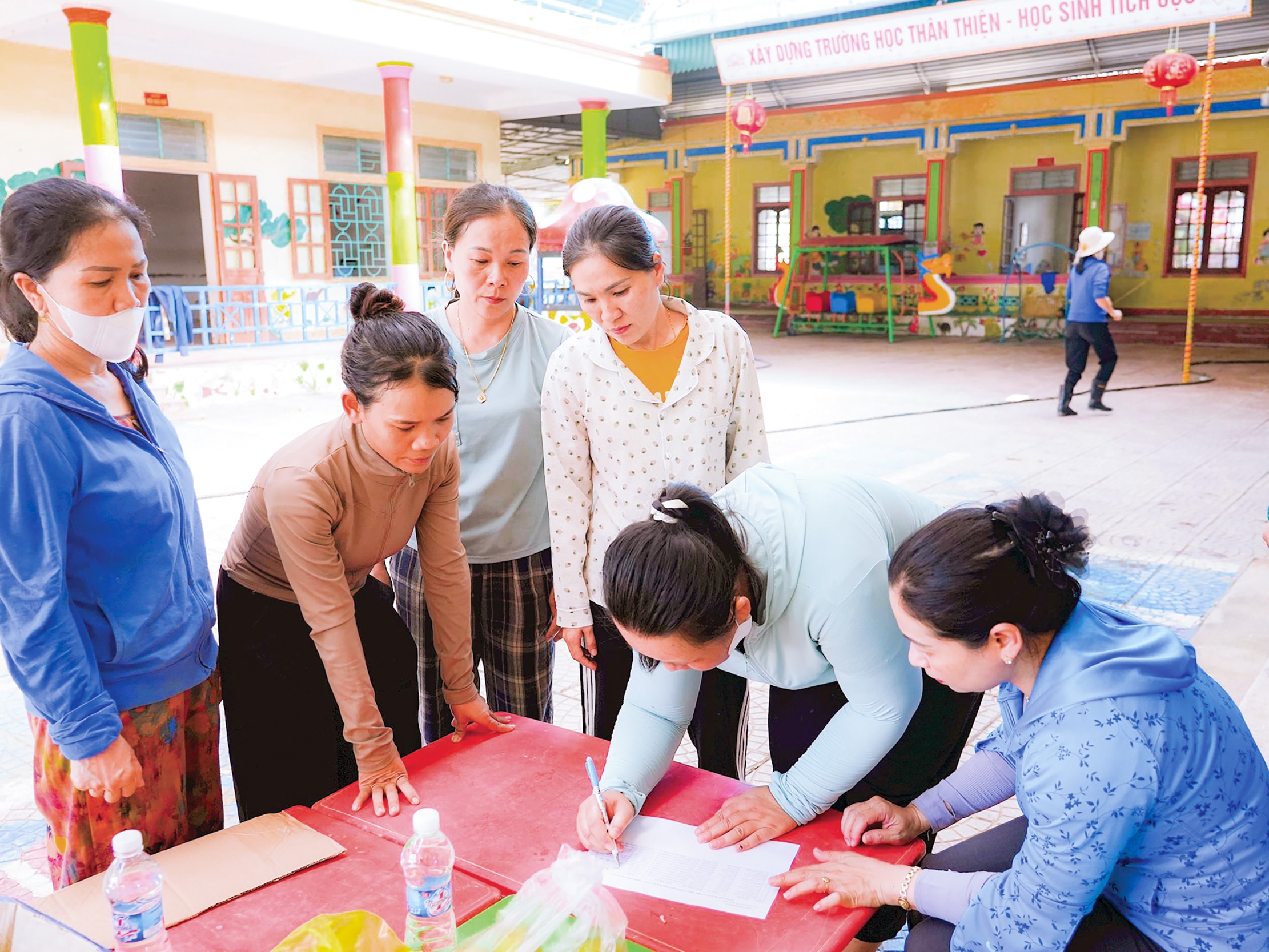
Ms. Phan Thi Thuy - Head of the Department of Culture and Society of Con Cuong commune said that after the first month of confusion, the department has now defined its activities, started to clarify the work, and assigned tasks to each staff member. "I myself have to work and learn a lot at the same time. In the field of education, I used to be a civil servant of the Department of Education and Training, but only specialized in preschool education. All the remaining staff and specialists of the department do not have education expertise. Our way of working is to closely follow the directive documents of each sector and field to implement. At the same time, coordinate with all levels and sectors to organize training for staff in each field of responsibility," Ms. Phan Thi Thuy shared.
Lack of specialized and experienced education specialists is the reality of many communes when they come into operation. Previously, when implementing the 3-level local government, at the district level there was the Department of Education and Training and the Department of Home Affairs advising the district People's Committee to manage the staff of preschool, primary and secondary schools in the area, but when implementing the 2-level local government, there were only 1-2 civil servants from the Department of Culture and Society advising the commune People's Committee on State management of education, and the majority of those civil servants did not start working in the education and training sector, and if there were, they only had expertise in 1 level of education, so it was very difficult to advise on educational management work.
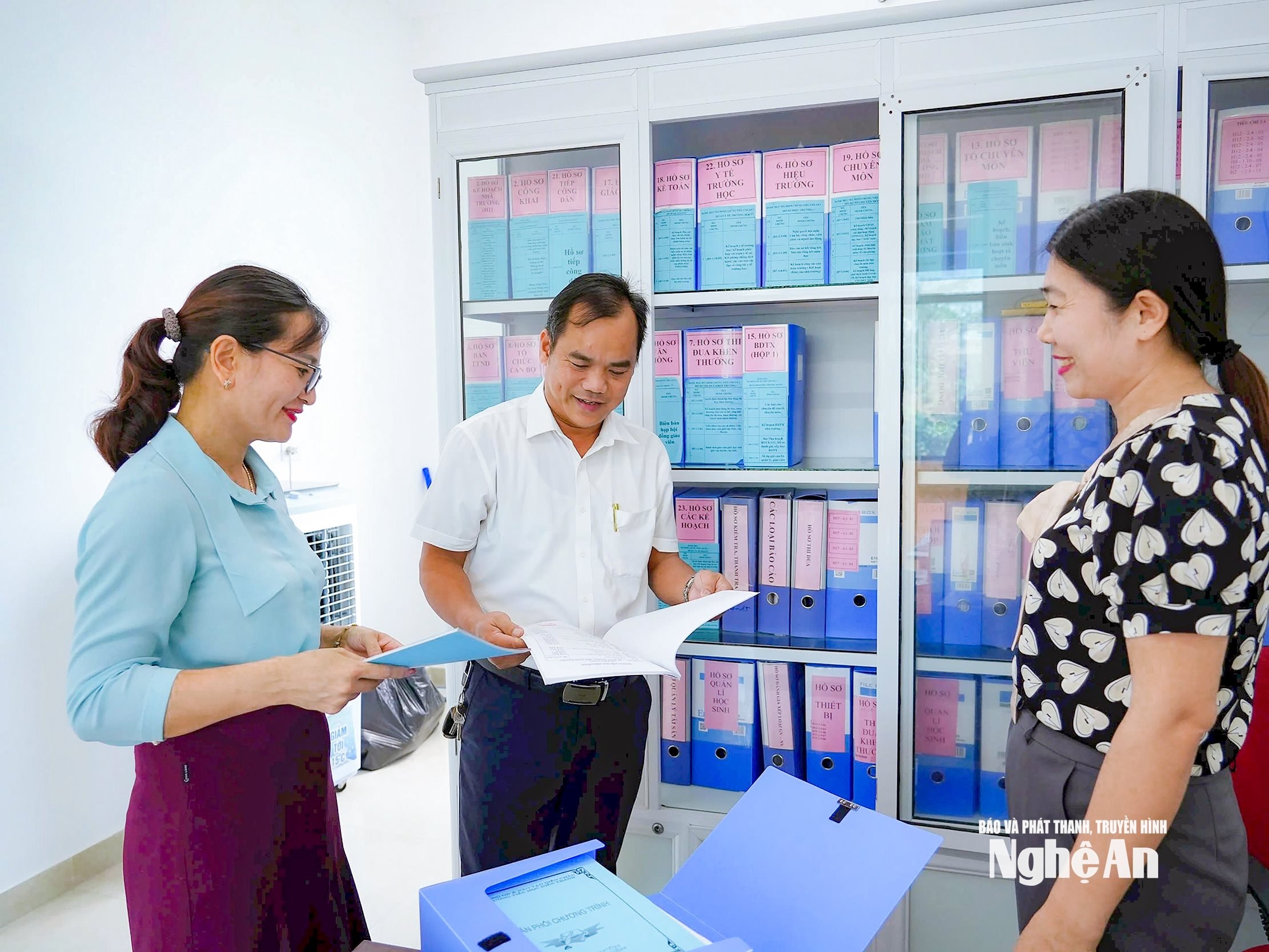
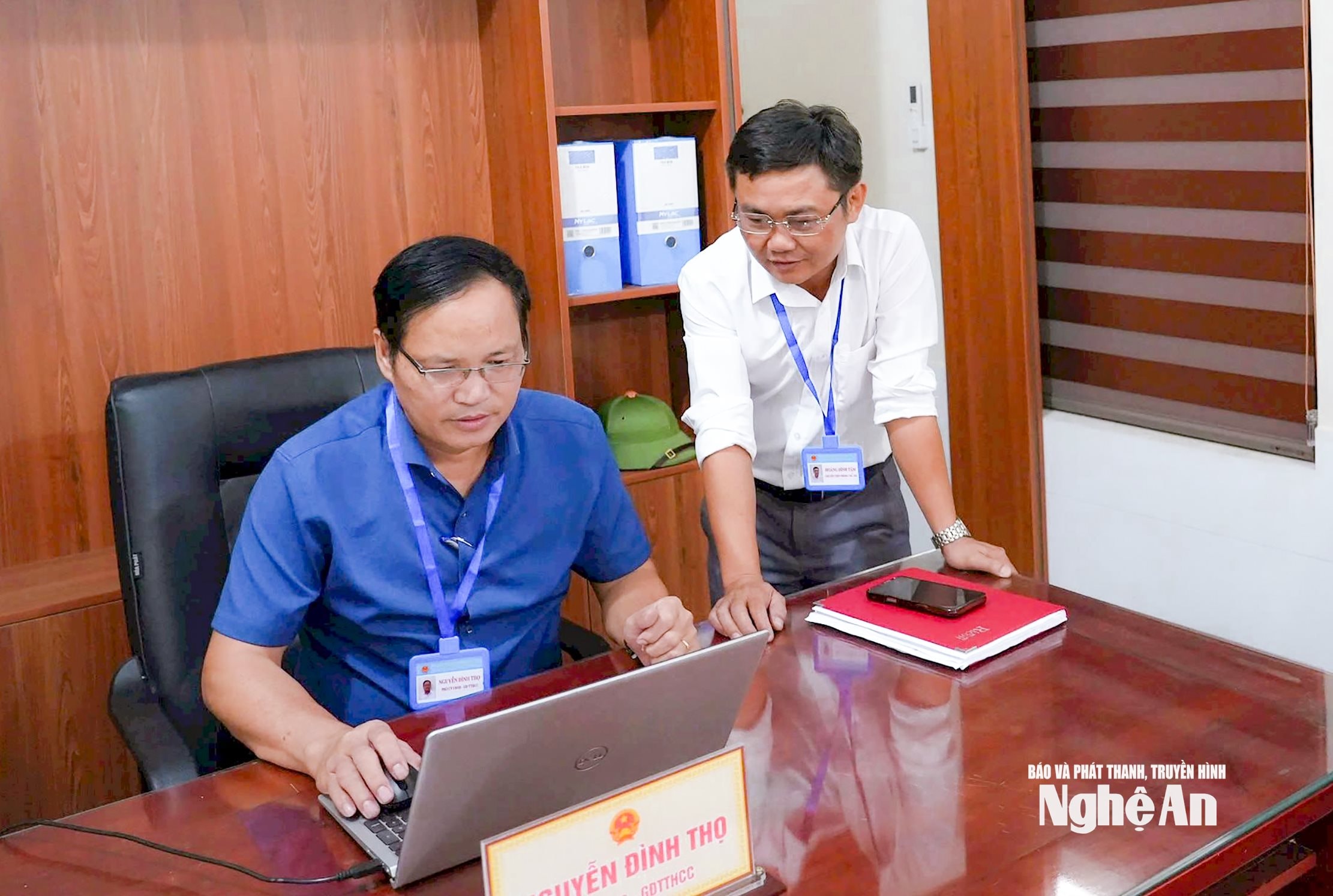
According to the reporter's investigation, in Nghe An province, the number of heads of cultural and social departments with professional qualifications related to education and having worked in education is only in 22 out of 130 communes. Meanwhile, there are up to 91 people who do not have professional qualifications related to education and have never worked in education. As for the position of deputy head of the cultural and social department, up to 106/130 communes do not have professional qualifications related to education and have never worked in education. As for the position of education specialist, up to 109/130 communes do not have professional qualifications related to education and have never worked in education. In total, there are up to 69/130 communes and wards where civil servants, including heads and deputy heads of cultural and social departments, and education specialists, do not have professional qualifications related to education and have never worked in education.

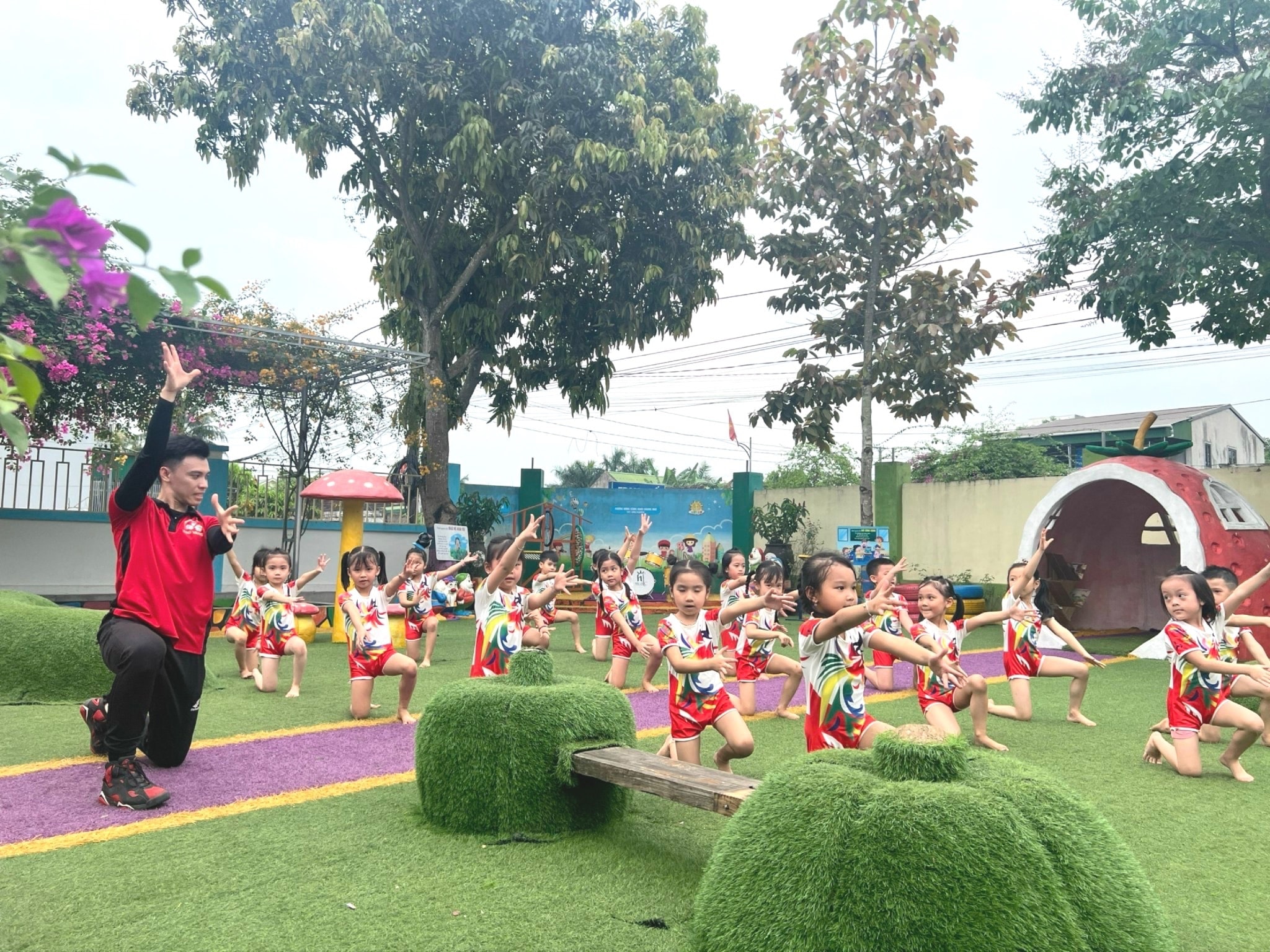
--------------
* Home
* Part 3: Efforts to adapt flexibly
*Final part: Upholding responsibility and dedicating oneself


